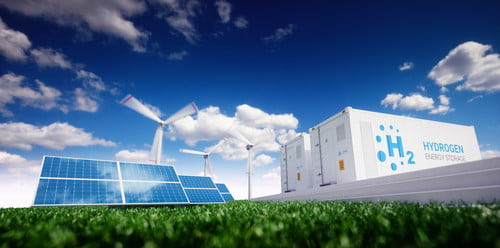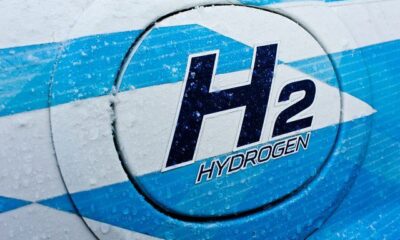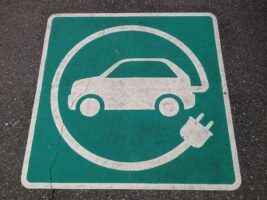Hydrogen is the Earth’s simplest and most abundant element. As an energy source, hydrogen fuel powers NASA’s rockets and produces only water as a waste product. As societies continually look for better energy options, many people wonder why hydrogen fuel is not in widespread use.
Paul Ronney, an engineering professor and expert who studies combustion and propulsion, wants to address some of the challenges that present barriers to the broader adoption of hydrogen fuel. He recently weighed in on several of them.
The Downsides of Hydrogen-Fueled Cars
When Ronney gave his perspectives, many of them involved vehicles powered by hydrogen. He clarified that those automobiles have some advantages to take into account. The most notable one is that they don’t emit greenhouse gases from their tailpipes. That characteristic makes them particularly appealing in places that already have air pollution problems, or in destinations that are especially crowded.
However, using hydrogen as a power source requires compressing it in high-pressure tanks, a process that needs energy itself. There are several thousand hydrogen cars on the road, and most of those implement fuel cells that transform chemical energy into power.
The cells are complex and need pricey materials, like platinum. Scientists are looking into building cheaper power sources, but it could be a while before those get developed enough to make production feasible. So far, the disadvantages of hydrogen-powered cars make it unappealing for many automobile companies to build the components. They’d rather stick with less-expensive, time-tested methods.
However, that isn’t always the case. China, South Korea, and Japan collectively set a goal to bring millions of hydrogen-powered vehicles to their roadways by the end of the next decade. This initiative will cost billions, but supporters believe hydrogen is the power source of choice for heavy vehicles, like buses. They also think hydrogen cars can complement electric ones instead of replacing them.
The people who aren’t as enthusiastic about hydrogen cars point out that they’re much more expensive than gas-fueled vehicles and would remain as such unless they gain momentum in a big way. Relatedly, there aren’t yet enough hydrogen fueling stations to make a gigantic increase in usage realistic. Individuals worry about explosions at those stations, too.
The Process of Creating Hydrogen
Since hydrogen is highly reactive, the Earth has almost no pure sources of it. Instead, it’s usually made from methane through a process that produces greenhouse gases, including carbon dioxide. Thinking about the energy-creation process is crucial when discussing hydrogen, as with other power-related topics. For example, the pumps that make water move through a system often have electric motors as their driving forces.
Using methane to make hydrogen is not the only solution. It can also be made from water using electrolysis, which requires electrical energy. Ronney confirmed that using solar energy for the electrolysis is a possibility.
For now, that approach to making hydrogen doesn’t cause a reduction in greenhouse gas emissions. That’s because solar only comprises a relatively tiny amount of all the energy produced in the U.S. Ronney says using solar-powered electrolysis to make hydrogen could eventually have a more significant impact on emissions. Solar energy has to become more popular first, though.
The Possibilities and Limitations of Internal Combustion Engines
As mentioned earlier, the fuel cells used for hydrogen-powered cars are expensive and complicated. Ronney is more interested in internal combustion engines that use hydrogen, which he says are inexpensive to modify. Also, these engines produce water rather than carbon dioxide as a waste product.
Ronney also mentioned that internal combustion engines and hydrogen fuel make a beneficial pairing because they run well in fuel-lean conditions, where the amount of oxygen significantly outweighs the fuel. That characteristic is good for efficiency, and substantially reduces nitrogen oxide emissions, Ronney said.
However, a limited range for vehicles operating with hydrogen combustion engines could be something that prevents them from gaining traction. From 2005 to 2007, BMW offered a car that ran on hydrogen or gas called the Hydrogen 7. It could only go 125 miles on 17.6 pounds of hydrogen. Whether building a hydrogen-fueled car with cells or a combustion engine, storing the fuel is tricky.
The cells are bulky but getting more streamlined. Also, compared to internal combustions, they have a more extended range. The limited range makes some researchers eager to put their time and energy into improving fuel cells rather than spending too much time on internal combustion engines. However, Ronney is among those trying to make internal combustion engines more feasible. The outcome of that work could lead to meaningful improvements.
The Challenges of Using Hydrogen in Homes
There’s a huge focus on reducing transportation industry emissions, and for good reason. Ronney said people should not overlook the option of using hydrogen to fuel homes. He admitted that safety is a concern due to its flammability, but believes there are ways to reduce the dangers. He also gave a comparative example of how electricity is dangerous, too, but it’s widely used in homes and businesses.
Tweaking the natural gas infrastructure to make it compatible with hydrogen is an option within reach, Ronney thinks. Going ahead with that would require resources and time, plus people would need to be open to the idea of making such changes.
However, a solar-hydrogen powered home in New Jersey proves that the alternative to the norm is at least something to ponder for the future. The developer and owner of the house says that between the solar-hydrogen setup and a geothermal heating system, he pays no electricity bills. Even better, the man sells excess electricity back to the grid, and doing that turns a profit of $7,000-$20,000 annually.
However, one of the main obstacles of popularizing a technology that’s not in the mainstream yet is that people resist change. They tend to want to stick with what they know, even if evidence shows better options do or could exist. Individuals may not feel there are compelling-enough reasons to switch to a hydrogen home energy system instead of the ones they use now.
That’s not to say some entities aren’t trying to incorporate hydrogen into their plans. In Florida, the Orlando Utilities Commission invested $9 million into a hydrogen-based system that makes energy with electricity from its solar equipment. The goal is to store the hydrogen for later, making it function like a battery when the solar energy potential decreases.
A Mixed Bag
This overview shows there’s no simple answer to why hydrogen fuel has some catching up to do concerning its popularity and usage. However, there are thought-provoking reasons to research it further and try to tackle some of its shortcomings.


 Environment12 months ago
Environment12 months agoAre Polymer Banknotes: an Eco-Friendly Trend or a Groundswell?

 Features11 months ago
Features11 months agoEco-Friendly Cryptocurrencies: Sustainable Investment Choices

 Features12 months ago
Features12 months agoEco-Friendly Crypto Traders Must Find the Right Exchange

 Energy11 months ago
Energy11 months agoThe Growing Role of Solar Panels in Ireland’s Energy Future





























